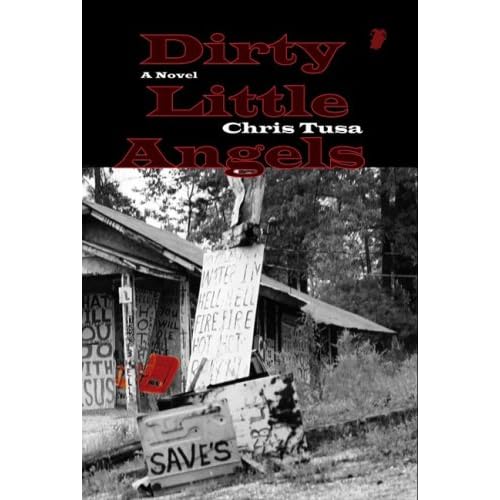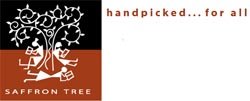This book, first published in 1962, is considered one of the most influential books of the last century, as well as a landmark in feminist writing. The author, Doris Lessing, won the Nobel Prize for literature in 2007. The Golden Notebook has been the focus of a tremendous amount of scholarly discourse, that this review has absolutely
no pretensions of adding to.
As a decidedly unscholarly person, I found this book to be one of the most difficult I've ever read. I chose to read it merely as a novel, however, overlooking everything else, which is probably how the author intended it in any case. Indeed, her preface to the edition I read states as much - the story was never written as a feminist text, or even as a book purely for women.On the contrary, her intention was to demonstrate a new structure to the novel, developing this story as a small novel, interspersed with writings from the journals of one of the characters. The reader alternates, therefore, between the protagonist's voice and the author's. The characters were based on the women she saw around her, the conditions of their lives in the Britain of the 50s and 60s, and their largely antagonistic relationships with men.
Anna Wulf, the central character of this book, is a writer and single mother who begins a series of notebooks that record her life. Even as she battles writer's block, she is so consumed by the fear of going mad that she decides to seperate this record into distinct narratives detailing singular aspects of her life. So there is a black notebook (her writing), a yellow notebook (her emotional life), a red notebook (her experiences as a member of the Communist party ) and a blue notebook (her everyday experiences).
Anna is complex, and hovers on the brink of a nervous breakdown as she faces disillusionment and rejection of various kinds - her association with communism grows increasingly strained, her relationships invariably leave her feeling used and betrayed. Finally, she meets Saul, a man who is practically her doppelganger and, in the course of an extremely unsettling relationship with him, she eventually faces her demons and resolves some of her issues. This exchange is chronicled in a fifth notebook- the Golden Notebook of the title.
I loved the robust language of the book, and the throb of nervous energy that runs through the notebooks, as Anna flits between her memories and plots for stories that are thinly veiled accounts of her own life. The journey through her feverish, wordy interior world was a challenge and, despite never really liking the character of Anna, I found myself wanting to know how her various crises would be resolved. At the same time, the book can easily feel dated. Womens' lives, at least in the urban context, have progressed since the time of this book, as has stylistic innovation in literature and, indeed, the feminist movement itself. Thus, this view of the relationship between men and women being essentially confrontational feels hostile and even objectionable today, but was perhaps the dominant view in the 60s. The flow of the novel, innovative for its time, didn't feel smooth either - bracketed explanations frequently crop up to explain sections and how to view them, leaving little to the reader's imagination. Sometimes the dialogues ascribed to some characters are strange, especially the Americans, who frequently sound and behave like characters from daytime sitcoms ("No, doll. No, baby").
A big problem for me with the book was the complete absence of any sound, morally coherent male characters - indeed the book reminded me of the early seasons of
Desperate Housewives where the male characters seem like parodies of their own worst avatars. And yet, these are the men Anna unerringly returns to, and going by her journals, these are the men who shape her view of the world and herself. While she blames them for their cruelty, she cannot live without them either. At the same time, Anna seems incapable of building healthy relationships with other women. Her friendship with her best friend Molly is not without issues, and her opinions of all the other women in the book are largely derisive. And considering that she is a mother, her relationship with her daughter, Janet, occupies her ruminations the least. Janet remains a shadowy peripheral figure, until she finally breaks away for the safe 'normalcy' of boarding school. And yet, towards the end of the book, Anna suddenly realizes that
"
..Janet's mother being sane and responsible was far more important than the necessity of understanding the world". But why - I didn't understand where that epiphany came from, given how obsessively focused Anna has been on understanding the world upto that point.
Crucial to her recovery is the fifth notebook, the Golden Notebook, where all four strands of her narrative finally come together.But what dominates its narrative is yet another man, even if he is eerily siimilar to Anna. I even wondered if he was perhaps a figment of her imagination, crucial to her 'cracking up'and eventually resolving her conflicts with men. But no, the plot leads elsewhere. Nevertheless, at this point, as he alternately rages and then embraces her, she gifts him the golden notebook. The key to her identity, her recovery from all the turmoil holding her back - casually given away. Why?
And considering the interminable length of time the reader has spent inside Anna's head, the end feels sudden and almost flippant. Is irony intended here? Anna has ceased to be a communist. Now she announces she will no longer write, but join the Labour party and be (good lord!) a marriage counsellor. But when you have effectively chronicled the death of your belief in any kind of ideology, why begin endorsing another? And her turning away from writing felt like she was rejecting her creativity, which is what set her apart in the first place. And since the writing of those journals is what helped her recover, why is abandoning the words themselves necessary to heal? Essentially, Anna will be negating every aspect of her life and seeking the sanity of more conventional behaviour. Why?
As for it being a feminist bible....
I'm a feminist because I believe in equality and tolerance, not just because I'm a woman. To that effect, I would hesitate to call this book feminist or a positive influence on women struggling for empowerment. It is at its heart bleak, pessimistic and violent. Also homophobic. If its male characters seem like caricatures, the female characters finally feel the same, with their incessant internal conflicts, their almost parasitic need for male company, their weak hankering after men who clearly despise them.
A bible, indeed any book I consider influential must necessarily be affirming of life, of the power of the self and belief. And while I am no romantic, something that affirms life would in turn affirm love and tolerance. This book does nothing of the sort. It concludes with the suggestion that Anna will somehow fall in line with the life she has been bravely resisting for the last 500 pages. She will curb her creativity, be 'sane and responsible' for her daughter's sake, exchange one political ideology for another even after concluding that these will inevitably fail, and earn her living by "integrating with British life at its roots". Her relationship with men will continue to remain adversarial - that somehow, seems a given here.
Finally,I felt disappointed by this rather sad conclusion to a story about a woman so unique, despite her flaws - it felt like a cop out. Powerful yes, but ultimately not uplifting.
 Release date: March 2009
Release date: March 2009








